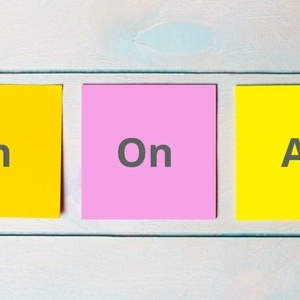Prefixos e sufixos (a) - Veja as respostas do exercício
Numbers
| Loneliness |
Do you realize that this is probably the first time in the history of man that society has been deliberately (deliberate) structured to alienate people? A mood of separateness (separate), isolation (isolate), loneliness (lonely) is everywhere. Only the last generation has grown up in the most isolated (isolate) environment ever created: the nuclear family and television. Last week I heard a radio talk-show in which the participants were trying to discover the reasons for so much student unrest (rest). One person speculated that one reason may be a ‘racial memory of the extended family’ that is, young people are uncounsciously (conscious) experiencing dissatisfaction (satisfy) with the lack of extended-family participation. Whether or not the explanation (explain) is valid, America certainly does suffer from a lack of full family life. One remedy for this deficiency (deficient) is offered by the communal (commune) movement: a realignment and restructuring of human relations to allow for more sharing, whether it is simply a strong sense of neighborliness (neighbor) or the evolution of an intense and involved group marriage. In anthropological (anthropology) terms, the extended family consists of people related by blood and marriage ties. In communal (commune) life, it consists of unrelated (relate) people who have come together as loving friends. Loneliness (lonely) and isolation (isolate) gather together in the cities, where people tend to remain cut off from one another even in the most physical (physic) crowded situations as the rush hour on New York City’s subway system so aptly (apt) and sadly (sad) illustrates. ‘All the lonely people, where do they come from?’ is a line in the Beatles’ song, ‘Eleanor Rigby’. Why ask? Just listen. They are there, all around you. The need for human contact stands out on the surface of the skin (what do people really go to church for?). Right now, if you are not alone, grasp the hand of the person on either side of you and say “hello”. Is it a little embarrassing (embarrass) for you to do? Embarrassing (embarrass)? Do you understand what it means to be embarrassed (embarrass) just to hold a person’s hand and greet him, be he stranger (strange), friend, or acquaintance? |
| Richard Fairfield, Communes USA |















ID: {{comments.info.id}}
URL: {{comments.info.url}}
Ocorreu um erro ao carregar os comentários.
Por favor, tente novamente mais tarde.
{{comments.total}} Comentário
{{comments.total}} Comentários
Seja o primeiro a comentar
Essa discussão está encerrada
Não é possivel enviar novos comentários.
Essa área é exclusiva para você, assinante, ler e comentar.
Só assinantes do UOL podem comentar
Ainda não é assinante? Assine já.
Se você já é assinante do UOL, faça seu login.
O autor da mensagem, e não o UOL, é o responsável pelo comentário. Reserve um tempo para ler as Regras de Uso para comentários.